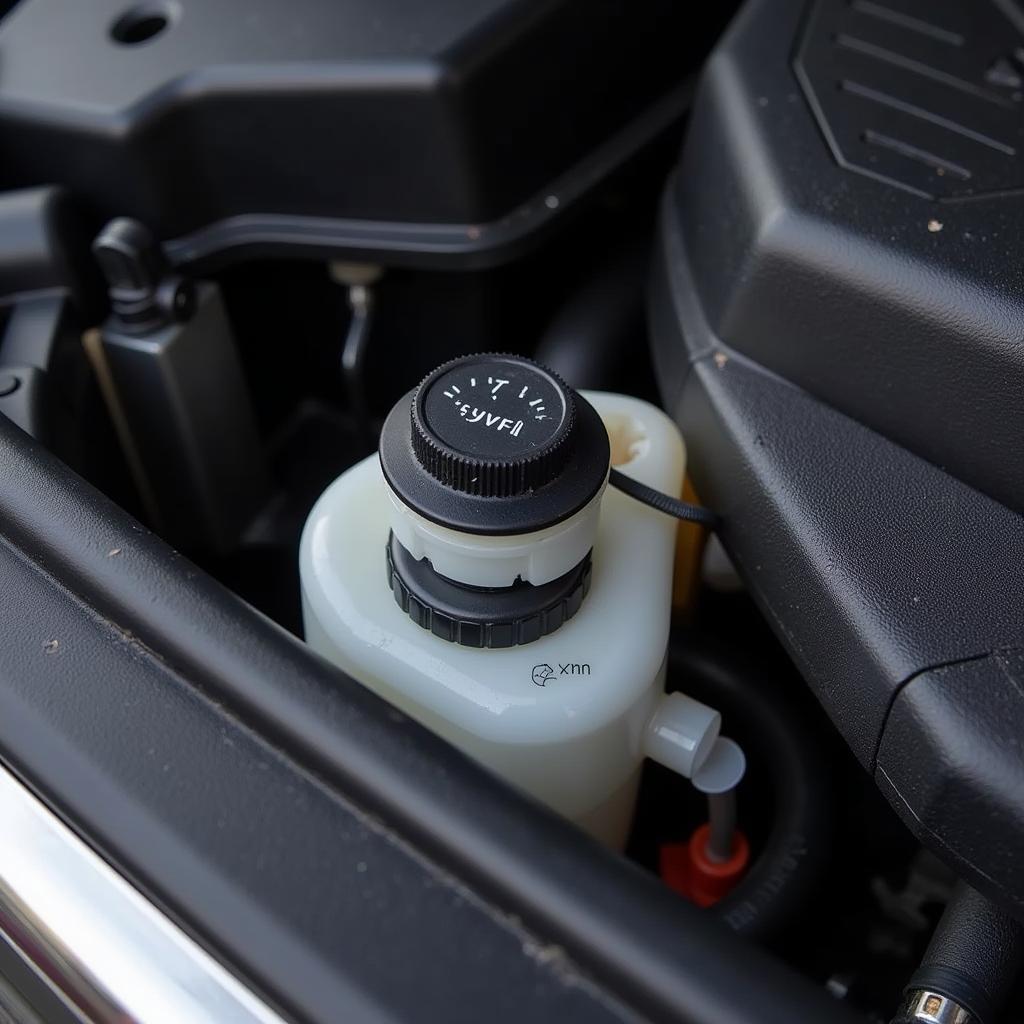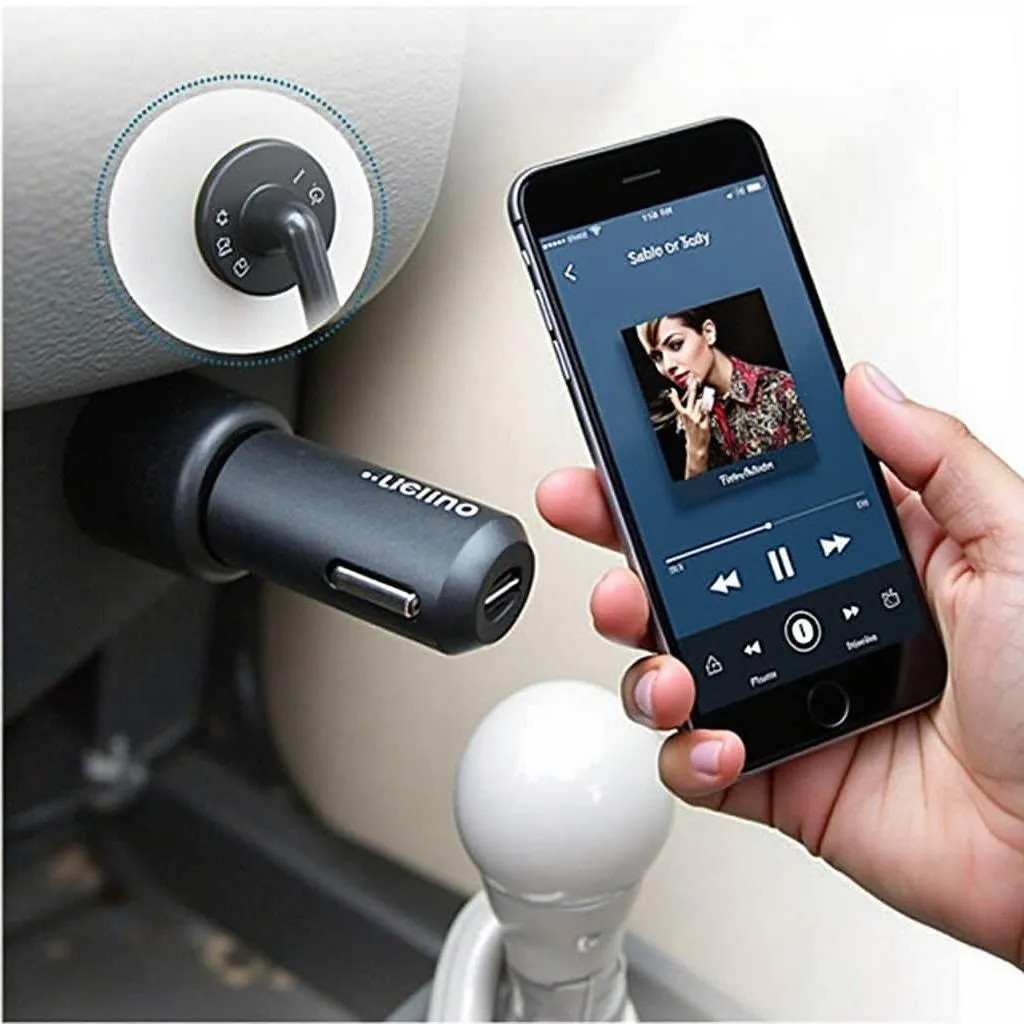The parking brake warning light on your VW Passat illuminating can be a frustrating experience. While it may signal a simple issue like an engaged parking brake, it can sometimes indicate a more complex problem within your braking system. This guide will walk you through understanding the various reasons behind the VW Passat parking brake warning light and offer practical solutions to get you back on the road safely.
Common Causes of a VW Passat Parking Brake Warning Light
Several factors can trigger the parking brake warning light in your VW Passat. Identifying the root cause is crucial for effective troubleshooting. Here’s a breakdown of the most common culprits:
- Engaged Parking Brake: The most obvious reason is an engaged parking brake. Double-check if you’ve fully released the parking brake lever or disengaged the electronic parking brake button.
- Low Brake Fluid: A leading cause for concern is low brake fluid, often due to leaks in the braking system. Brake fluid is essential for transmitting force from the brake pedal to the wheels.
- Faulty Brake Fluid Level Sensor: Your Passat utilizes a sensor to monitor the brake fluid level. A malfunctioning sensor might send a false signal, triggering the warning light even with sufficient brake fluid.
- Worn Brake Pads: As your brake pads wear down, the brake fluid level naturally drops. While this is normal, excessively worn pads can trigger the warning light.
- Issues with the Electronic Parking Brake: Modern VW Passats often feature electronic parking brakes. Problems within the electronic system, such as a faulty switch or control module, can illuminate the warning light.
Diagnosing the Problem
Identifying the specific cause behind the warning light requires some investigative work:
- Check the Parking Brake: Begin with the basics. Ensure the parking brake lever is fully lowered or the electronic button is disengaged.
- Inspect Brake Fluid Level: Open the hood and locate the brake fluid reservoir. Check the fluid level, ensuring it’s within the minimum and maximum markers. If it’s low, adding brake fluid might temporarily resolve the issue, but addressing the underlying cause is crucial.
- Visual Inspection: Examine the brake lines and components under your car for any signs of leaks, cracks, or damage. Look for wet spots or fluid trails near the wheels or brake calipers.
- Consult Diagnostic Trouble Codes (DTCs): For electronic parking brake issues, scanning for DTCs using an OBD code reader can provide valuable insights into the specific system malfunction.
Solutions and Repairs
The solution to your VW Passat parking brake warning light depends entirely on the diagnosed cause:
-
Add Brake Fluid: If low brake fluid is the culprit, carefully top up the reservoir with the recommended DOT specification. However, remember that this is a temporary fix and further investigation into potential leaks is necessary.
-
Replace Worn Brake Pads: Worn brake pads require immediate replacement. Neglecting this can lead to reduced braking performance and potential safety hazards. Consider replacing the brake rotors if they exhibit significant wear or damage.
 VW Passat Brake Fluid Reservoir Location
VW Passat Brake Fluid Reservoir Location
-
Address Brake Fluid Leaks: Repairing brake fluid leaks demands professional attention. Ignoring leaks can lead to complete brake failure, putting you and others at risk.
-
Repair or Replace Faulty Components: If the diagnosis points to a faulty brake fluid level sensor, electronic parking brake switch, or control module, replacing the malfunctioning component is necessary.
When to Seek Professional Help
While some issues, like adding brake fluid, can be handled by individuals with basic car knowledge, others require the expertise of qualified mechanics. Here’s when to seek professional help:
- Suspected Brake Fluid Leaks: Dealing with brake fluid leaks requires specialized knowledge and tools to ensure a safe and effective repair.
- Electronic Parking Brake Problems: Issues within the electronic parking brake system often necessitate specialized diagnostic equipment and experience.
- Lack of Mechanical Expertise: If you’re uncomfortable with diagnosing and repairing car issues, it’s always best to leave it to the professionals. Attempting repairs without proper knowledge can worsen the problem or pose safety risks.
VW Passat Parking Brake Warning Light FAQs
1. Can I drive my VW Passat with the parking brake warning light on?
While driving short distances with the warning light on might be possible, it’s highly discouraged. The illuminated light indicates a potential problem with your braking system, which could lead to reduced braking power or failure.
2. How much does it cost to fix a VW Passat parking brake warning light issue?
The repair cost varies significantly depending on the underlying cause. A simple brake fluid top-up might cost a few dollars, while addressing brake fluid leaks or replacing electronic components could range from hundreds to thousands of dollars.
3. How can I prevent future parking brake warning light issues?
Regular vehicle maintenance is key. This includes routine brake inspections, timely brake pad replacements, and addressing any fluid leaks promptly.
4. Is it safe to diagnose and repair the issue myself?
Unless you possess the necessary mechanical skills and experience, it’s advisable to leave brake system repairs to qualified professionals. Incorrect repairs can compromise your safety and that of others on the road.
5. What should I do if the warning light persists after adding brake fluid?
If the warning light remains illuminated even after topping up the brake fluid, further investigation is crucial. This indicates a potential leak or a problem with other brake system components.
Conclusion
Addressing the VW Passat parking brake warning light promptly is crucial for maintaining your safety and preventing further damage to your vehicle. By understanding the potential causes and following the appropriate diagnostic steps, you can ensure a swift resolution to the problem. Remember, when in doubt, seeking professional help from qualified mechanics is always the safest course of action.

